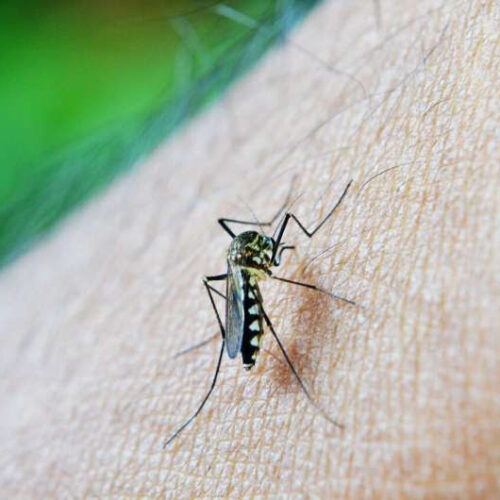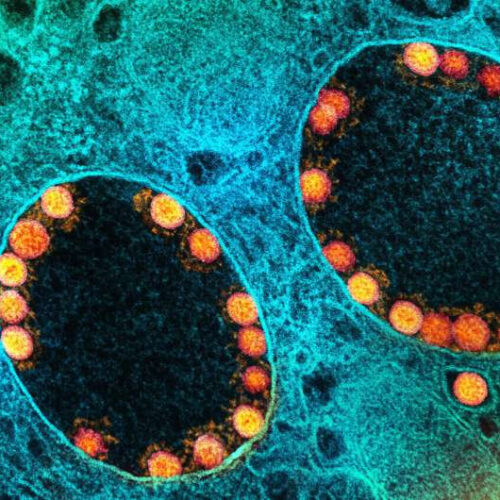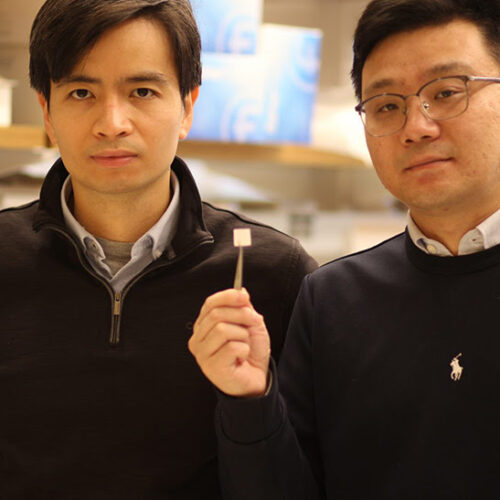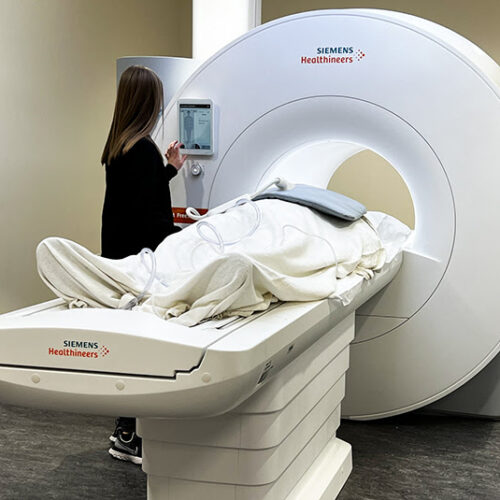by Johns Hopkins University Bloomberg School of Public Health Credit: CC0 Public Domain Blocking a key protein found in Anopheles gambiae mosquitoes—the principal vector for malaria transmission to humans in Africa—could thwart infection with malaria parasites and thus prevent them from transmitting the parasites to humans, according to a study from researchers at the Johns...
Mix-and-match trial finds additional dose of COVID-19 vaccine safe, immunogenic
by NIH/National Institute of Allergy and Infectious Diseases Transmission electron micrograph of SARS-CoV-2 virus particles (gold) within endosomes of a heavily infected nasal epithelial cell. Credit: NIAID In adults who had previously received a full regimen of any of three COVID-19 vaccines granted Emergency Use Authorization (EUA) or approved by the Food and Drug Administration...
SCIENTISTS EXPRESS HORROR AT ELON MUSK’S NEURALINK BRAIN CHIP
NEUROSCIENCE/BRAIN SCIENCE While Tesla CEO Elon Musk believes that his brain-computer interface startup Neuralink is the future of human interactions with technology, many experts aren’t so convinced. Researchers and scientists spoke to The Daily Beast this week to express horror at Musk’s goal of connecting human brains to computers. Ultimately, at the heart of their trepidation is the infusion of Big...
Your friend or relative is home sick with covid. Here’s how to help
Wellness What I thought was a dry throat caused by staying in my grandparents’ 85-degree home over the holidays was covid-19. I tested positive in late December, after I got home, as the number of covid cases was rising toward record levels. My mother, teen sisters and grandparents tested positive around the same time, although...
DRUG THAT ‘SCOOPS UP’ CHOLESTEROL MAY CUT DEMENTIA RISK AFTER STROKE
The research team investigated cyclodextrin, which is FDA-approved for use as an ingredient in other drugs. Cyclodextrin’s chemical properties and shape allow it to “scoop up” and safely store cholesterol without provoking a heightened inflammatory response. The researchers found that treatment with cyclodextrin resulted in less cholesterol accumulation and inflammation in the brain in animal...
Piezoelectric Scaffold Boosts Cartilage Regeneration
JANUARY 25TH, 2022 CONN HASTINGS MATERIALS, ORTHOPEDIC SURGERY A team of researchers at the University of Connecticut have developed a biomaterial scaffold that generates small amounts of electricity when compressed. The piezoelectric material is intended to facilitate cartilage regeneration in joints. Normal movement of a joint in which the scaffold is implanted will create repeated small bursts...
Low-Field MRI for New Imaging Possibilities, Fewer X-rays
JANUARY 25TH, 2022 CONN HASTINGS RADIOLOGY Researchers at the Ohio State University Wexner Medical Center are using a new low-field MRI system that may expand the capabilities of MRI for patients with implanted devices, patients who require lung imaging, and obese patients. The system, which was developed in a collaboration between Siemens and Ohio State, has a...
Faulty BRCA genes linked to prostate and pancreatic cancers
UNIVERSITY OF CAMBRIDGE Faulty versions of the BRCA1 and BRCA2 genes are well known to increase the risk of breast cancer in men and women, and in ovarian cancer. Now BRCA1 and BRCA2 have been linked to several other cancers, including those that affect men. A study published today in the Journal of Clinical Oncology has provided...
Comprehensive framework outlined for addressing early-onset colorectal cancer research
VANDERBILT UNIVERSITY MEDICAL CENTER The reasons for rising rates of colorectal cancer in people younger than 50 are largely unknown, but a paper by Vanderbilt researchers published Jan. 25 in The Lancet Oncology sets a comprehensive framework for addressing research challenges and patient needs. It gives an overview about the state of the science related to the...
Younger individuals may have the highest risk of presenting with distant-stage colorectal cancer
AMERICAN ASSOCIATION FOR CANCER RESEARCH Bottom Line: Individuals between 20 and 39 years old experienced the steepest increase in distant-stage early-onset colorectal adenocarcinoma incidence between 2000 and 2016, with the youngest non-Hispanic Black and Hispanic populations experiencing greater proportions of distant-stage disease. Journal in Which the Study was Published: Cancer Epidemiology, Biomarkers & Prevention, a journal of...





